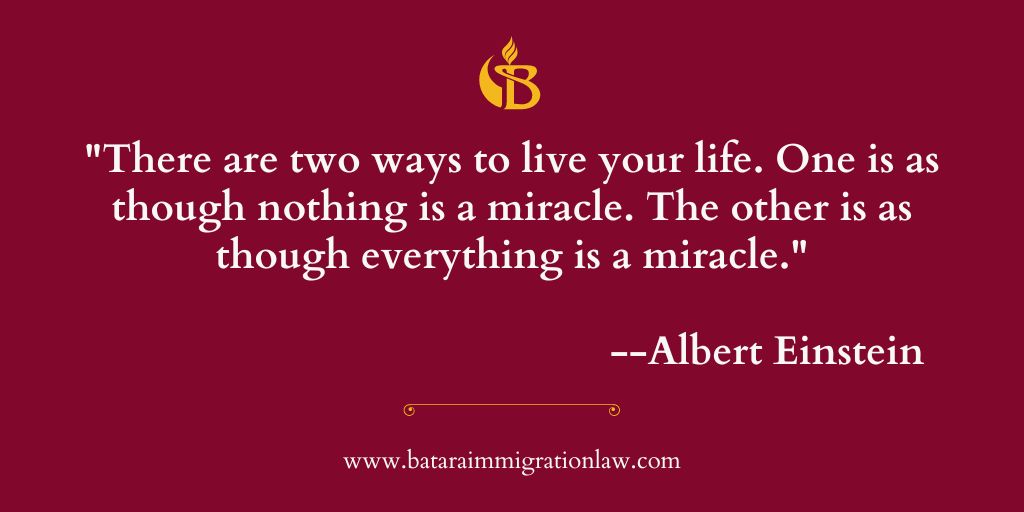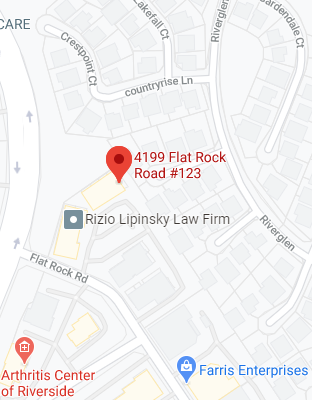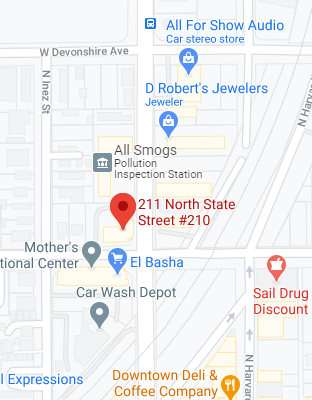
The phone rang. I knew it was my son. I felt both optimism and fear. As he began to talk, his voice quivered. He gave me the news.
He passed the California State Bar Examination.
We laughed. Then we cried.
I was at a loss for words. What’s a dad to say to a son who becomes a peer?
After we hung up, I felt the joyful spirits of my parents. The desire to achieve educational success – to pursue the impossible dream – given to me by my parents, had been passed to my son.
The success of my son . . . resting upon the shoulders of my parents . . . proved to me, once again, how much can be created by those with so little.
The magnitude of my parents’ dreams far exceeded the duration of their lives.
Positive inspiration – the belief that every day is a miracle – can and does produce positive long term consequences.
They knew the world would be a better place if each of us, in our way, strove to reach the seemingly unreachable.
During my formative years, for many families living in my community, a lower income was relatively insignificant vis-a-vis their quest for economic and social success, security, and freedom.
My parents fit into this category.
Having been raised in far away places with so little of life’s essentials – food, clothing, and shelter – my parents knew America is a place of plenty, even at the lower rungs of society.
Growing up in a home of modest means, my sisters and I hardly knew how close to poverty our household existed.
We were proud of our community. We were happy with what life had provided us.
My parents were a step above homelessness, a step above financial crisis, a step above the place they called home as children.
They earned minimum and below minimum wage. But they had steady employment.
They were able to afford a roof over our heads and food on our table. They provided my sisters and me a home, secure from the many problems of the outside world.
They made the most out of so little. They created a castle from the brick and mortar mini-house we lived in.
We lived in a neighborhood surrounded by American poor, the only place my parents could afford.
I was not blind to the poverty around us. But I watched my parents display, by daily actions and not mere words, that poverty was not a life sentence – that each new day was another small step of a miraculous journey to a better tomorrow.
The majority of my neighbors – whether from the American south like Arkansas, Alabama, and Louisiana, from Latin America nations such as Mexico, Panama, and Costa Rica, or from across oceans like Ireland, the Philippines, and Japan – shared similar sentiments and commitment.

Between then and now, things have changed.
Even though I know several immigrants and folks of modest means who exhibit such old school qualities, many of them lament the diminishing belief of friends and family in positive social, economic, and personal outcomes.
In their view, it seems far too many of today’s American poor are no longer optimistic about their futures.
In their view, it seems far too many first generation immigrants and children of immigrants are no longer optimistic about their futures.
I agree.
Based on my day to day interviews, I hear increasingly negative vibes from prospective clients.
There are many reasons – some external, some internal – for their state of mind and soul.
It seems, sadly, they do not believe they can reach the unreachable, achieve the unachievable. They do not believe in miracles.
I could be wrong. I have no hard data to support this view.
Rather, as an immigration attorney in Riverside for 20+ years, I can discern an ominous pattern – a downward trend in the outlook of immigration clients and their families.
On the other hand, I still meet immigrants, new immigrants – including new poor immigrants – who do not fit into the mold of pessimism and defeatism.
They still perceive their journey as an everyday miracle to a better tomorrow not only for self, but also for those they love here and abroad.
They offer a fresh infusion of personal and community pride for America. They are here as part of a quest to build something better than what they left behind.
Recently, scholars have started to realize immigrants are critical to revitalizing impoverished and blighted neighborhoods. I’m stunned they took such a long time grasping the obvious.
I perceive the issue like a yard sale. One person’s junk and trash is another person’s jewels and treasures.
Born and raised in poverty, like my parents and my childhood friends’ parents, these immigrants believe in the impossible dream.
That’s why they came to America.
It’s a sense that life is a miracle waiting to happen.
They work hard, in hopes of giving their spouses and children a better tomorrow.
Contrary to media reports, the key to immigration reform is not difficult.
If politicians really want to restore America, they could start by acknowledging the social and economic importance of immigrants.
And if the actions of immigrants can help to rebuild deteriorating physical areas, they can also lift up the crushed morale of the American poor in the process.
And not just in the short term.
As my personal experience taught me, the optimism of my parents propelled their grandson’s graduation from law school decades after their deaths.
They understood – like many other immigrants understand – like ALL immigrants need to understand:
“There are two ways to live your life. One is as though nothing is a miracle. The other is as though everything is a miracle.”
Wallowing in self-pity is counter-productive. Miracles can and do happen.
However, the quality of one’s future life . . . and beyond . . . is dictated by the attitudes that immigrants adopt today.
Defeatism is a self-fulfilling prophecy.
The better course of action is to think positive, believe in miracles, and make them happen.
Recommended Reading:




